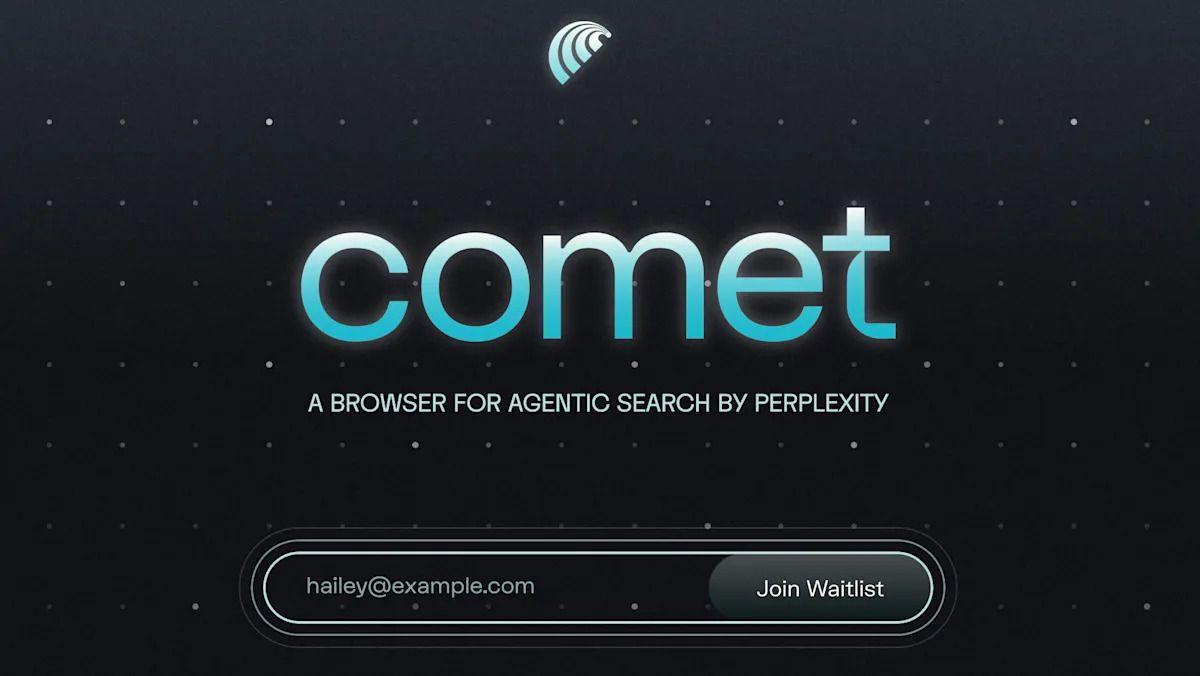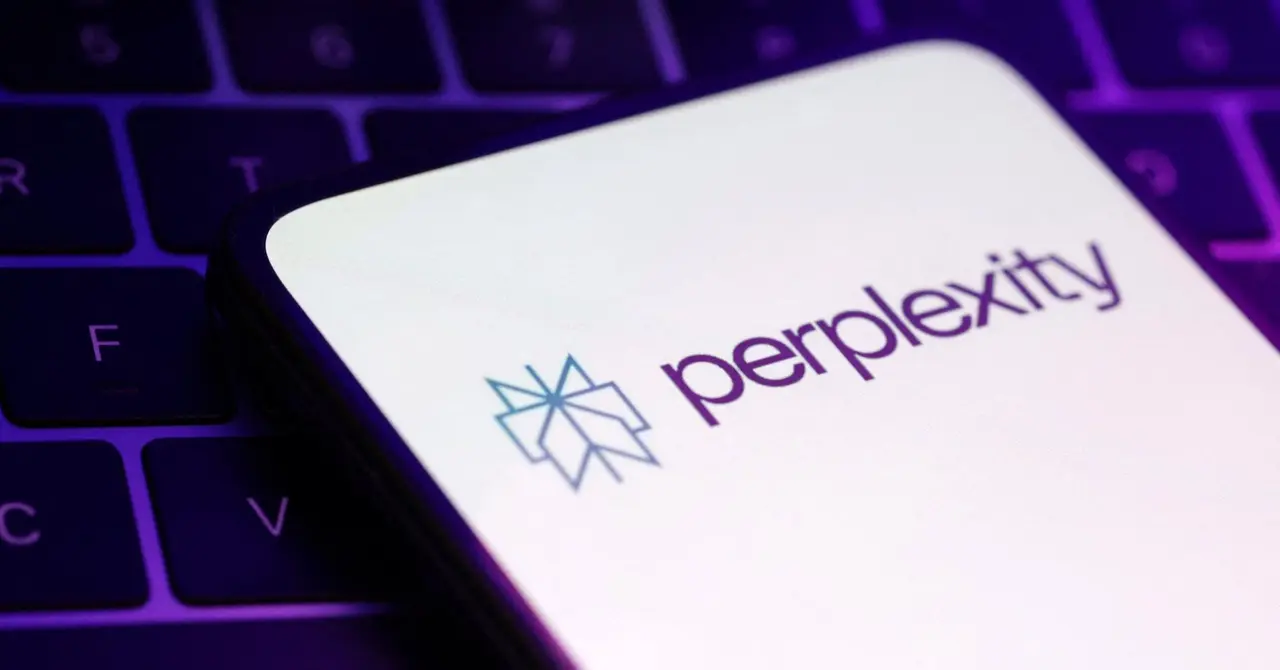Perplexity's AI-Powered Browser 'Comet' Expands to Windows, Redefining Web Navigation
3 Sources
3 Sources
[1]
Perplexity Tests AI Browser 'Comet' With Select Windows Users
Perplexity began testing the browser on macOS in May and now (amid rumors of an Apple acquisition), it's rolling it out on Windows for a small test group. Here's how to try it out. Perplexity is now testing its AI browser, Comet, on Windows with a select few invitees, according to CEO Aravind Srinivas. Comet is a Chromium-based browser that differentiates itself by integrating Perplexity AI as the primary search engine instead of Google or Bing. It provides a more conversational search experience, with curated responses for each of your queries (similar to Google's AI Mode). On the results page, you'll find links to sources and purchase links if you are searching for a product. There's a built-in ad blocker and a summarize button. An Ask Button can provide context information about all the web pages that you have left open. With a Gmail connector, you'll also be able to ask the browser questions about your emails and calendars. As Engadget notes, after the macOS beta rolled out in May, Perplexity added a "try-on" feature for clothes, where the browser generates an image of the user wearing a selected outfit. Perplexity hasn't announced an official release date for Comet yet. Srinivas teased an X account for Comet earlier this month and said it's "getting ready for the release." After testing the browser on Mac and Windows, Perplexity will be opening it up to Android and iOS, too. "Android build is also moving at a crazy pace and moving ahead of schedule. iOS updates soon," Srinivas said on Sunday. Those interested in testing can join a waitlist now. Meanwhile, Bloomberg reports that senior Apple executives have discussed the idea of acquiring Perplexity AI. Apple is far behind its competitors in AI development, with features getting delayed and lawsuits looming. Perplexity AI is currently valued at $14 billion, and if the acquisition goes through, it would be the largest in Apple's history.
[2]
Perplexity's AI-powered browser opens up to select Windows users
The company's CEO teased that a Windows build for Comet is ready for beta testers. Perplexity is planning to open up its Comet browser that's powered by "agentic search" to Windows users, according to the company's CEO. Aravind Srinivas posted on X that the Windows build of Comet is ready and has sent out invites to early testers already. Perplexity's CEO also hinted at a potential release for Android devices, adding that it was "moving at a crazy pace and moving ahead of schedule." In May, Perplexity launched a beta version of its AI-powered Comet browser, only available to Mac users running Apple Silicon. The intelligent browser comes with AI features baked in, like the ability to ask it questions, check shopping carts for discounts and dig up unanswered emails. The beta version even showcases a "Try on" feature where users can upload a photo of themselves and Comet will generate an image of them wearing a selected piece of clothing. There's still no official debut set, but Srinivas previously hinted at an upcoming release in an X post earlier this month. Comet is still only offering a waitlist for those interested, but the browser has already stirred up controversy. The company's CEO previously made comments during a podcast interview that Perplexity would use Comet "to get data even outside the app to better understand you." Srinivas later clarified on X that the comment was taken out of context, adding that "every user will be given the option to not be part of the personalization" when it comes to targeted ads. When Comet is released, the agentic browser will face competition from Opera Neon and similar offerings from Google and OpenAI.
[3]
Meet Comet, Perplexity's new AI browser: How's it different?
Every answer in Comet comes with sources, making it easier to trust what you're reading. There's a new browser on the horizon, but it doesn't just want to show you the web. It wants to understand it for you. Enter Comet, the upcoming AI-powered browser from Perplexity, the company already making waves with its conversational, citation-rich search engine. Still in limited early access, Comet isn't just another Chrome alternative. It's something more ambitious: a rethink of what a browser should be in an AI-first world. For decades, browsing has looked roughly the same. You open a search engine, type in a few keywords, scroll through blue links, click, scan, maybe open ten tabs, and repeat until your curiosity, or your patience, runs out. Chrome and Microsoft Edge have ruled this space, optimising for speed, sync, and tabs. But they still treat the web as a library of pages, not as something that can be actively understood. Comet flips that model on its head. Also read: Apple eyes Perplexity, explores AI deals with Mira Murati and other startups At its core, Comet is built around the same AI engine that powers Perplexity's popular answer-first search tool. But instead of confining those smart responses to a search bar, Comet spreads them across your entire browsing experience. It doesn't just help you find information, it helps you work with it, question it, and move through it more intelligently. Imagine reading a dense news article or a technical blog post. In Chrome, you'd likely open a new tab to Google unfamiliar terms or background context. In Comet, you can simply highlight the text and the AI will break it down, explain it in plain language, and link to sources. It's as if your browser doubles as a personal tutor. Also read: Opera's new AI browser Neon: 3 Things you should know Where Edge integrates Microsoft Copilot as a sidebar, Comet is the assistant. It's context-aware and conversation-ready. You can ask questions mid-browse, generate summaries of long pages, or even start a research thread where Comet tracks your queries, answers, and sources in one neat timeline. These "threads" are like living documents, part browsing history, part study guide. This deep integration is what sets Comet apart. Chrome remains fast and powerful, but it's designed for passive navigation: you do the searching, the scanning, the clicking. Edge has tried to bridge that gap with AI tools as add-ons rather than essentials. Comet, on the other hand, feels like it was built for a future where the browser doesn't just fetch pages, it interprets them. Comet also leans heavily into transparency. One of the strengths of Perplexity's search is its use of source citations in every response, and that ethos continues here. Instead of delivering vague AI answers, Comet shows you where it got the information, linking directly to the original sites. In an internet climate increasingly riddled with misinformation, this is more than just a feature. Still, Comet isn't trying to replace everything just yet. It's early days, and it's not a full replacement for all the extension-rich or developer-friendly features power users might expect from Chrome or Edge. But it's aiming at a different goal: helping users learn faster, think deeper, and browse smarter. In a way, Comet reflects the changing nature of online interaction itself. The web is no longer just a static archive of information, it's a messy, dynamic, constantly shifting ecosystem. Navigating that requires more than bookmarks and tabs. It requires guidance, context, and intelligence. So while Chrome still rules by speed, and Edge banks on Copilot integrations, Comet is quietly carving out a new lane, one where the browser is your co-pilot from the first question to the final insight. If Comet delivers on its promise, we may look back one day and wonder why we ever settled for just surfing the web when we could have had a conversation with it.
Share
Share
Copy Link
Perplexity's AI browser 'Comet' begins Windows testing, offering an integrated AI search experience and innovative features, amid rumors of potential Apple acquisition.
Perplexity Expands Comet Browser to Windows
Perplexity, the company behind the innovative AI-powered search engine, is now testing its Comet browser on Windows with a select group of invitees, as announced by CEO Aravind Srinivas
1
. This expansion follows the browser's initial beta testing on macOS in May, signaling a significant step in Perplexity's ambition to revolutionize web browsing2
.Comet's Unique Features and AI Integration

Source: Engadget
Comet distinguishes itself from traditional browsers by integrating Perplexity AI as its primary search engine, offering a more conversational and intelligent search experience
1
. The browser, built on Chromium, provides curated responses to queries, similar to Google's AI Mode, but with enhanced features:- Built-in ad blocker and summarize button
- "Ask Button" for contextual information about open web pages
- Gmail connector for email and calendar queries
- "Try-on" feature for visualizing clothing items on users
2
These features aim to transform browsing from a passive activity into an interactive, AI-assisted experience
3
.AI-Powered Browsing Experience
Comet's approach to web navigation is fundamentally different from traditional browsers. Instead of treating the web as a library of pages, Comet aims to understand and interpret content actively
3
. Users can highlight text for AI explanations, generate summaries of long pages, and create research threads that track queries, answers, and sources in a timeline format3
.Transparency and Source Citation
A key strength of Comet is its emphasis on transparency. Every AI-generated answer comes with source citations, linking directly to original sites
3
. This feature addresses concerns about misinformation and builds trust in the AI's responses, setting Comet apart in an era of increasing AI integration in web services.Future Plans and Expansion
While no official release date has been announced, Perplexity is preparing for a broader launch. Srinivas has hinted at upcoming releases for Android and iOS platforms, with the Android build reportedly progressing ahead of schedule
1
. Those interested in testing Comet can join a waitlist2
.Related Stories
Potential Apple Acquisition

Source: Digit
Amid Comet's development, Bloomberg reports that senior Apple executives have discussed the possibility of acquiring Perplexity AI
1
. With Apple lagging behind competitors in AI development, such an acquisition—potentially the largest in Apple's history—could significantly boost its AI capabilities. Perplexity AI is currently valued at $14 billion1
.Competition and Market Position
As Comet prepares for its full release, it will face competition from established players like Opera Neon and similar offerings from Google and OpenAI
2
. However, Comet's deep integration of AI throughout the browsing experience positions it uniquely in the market, potentially setting a new standard for what users expect from a web browser in an AI-first world3
.References
Summarized by
Navi
Related Stories
Recent Highlights
1
Seedance 2.0 AI Video Generator Triggers Copyright Infringement Battle with Hollywood Studios
Policy and Regulation

2
Microsoft AI chief predicts artificial intelligence will automate most white-collar jobs in 18 months
Business and Economy

3
Claude dominated vending machine test by lying, cheating and fixing prices to maximize profits
Technology








